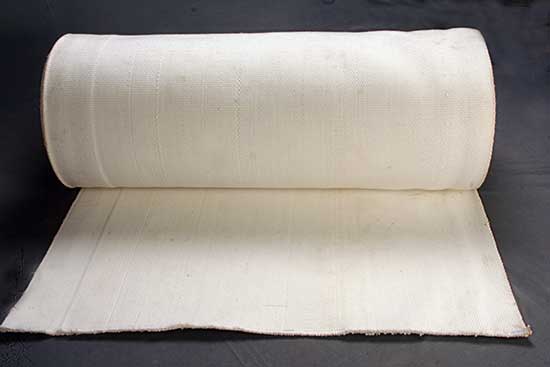How to Confirm if you need to Replace the Filter Cloths
If you are related to a business that is a leading part of industrial process to separate liquids and solids, you possibly know about what filter press is. And filter cloth is the most important component of filter press. Filter cloths create initial contact point with any particulate substance in unfiltered slurry, as the first particle comes in contact with the fabric. Nevertheless, most of the filtration is done by accumulation of captured particles forming a cake inside the chamber.
Porosity of filter cloth weave plays an important role in the process of filtration. Understanding the permeability of the material that allows filter press to work is likely to go a long way towards understanding that why and when you should replace the cloth.

Types of Filter Cloth
There are different filter cloths made of various materials available on the market. The weave of the sheets as well as its type determines how it will perform. The most common type of filter cloth is monofilament cloth, which is an indivisible strand of synthetic material. On the other hand, the spun or the multifilament texture is consisted of a number of strands twisted together.
Monofilament cloth is easily cleanable as they have low particle retention rate and a pressure washer that don’t allow more than 1000 psi. A fan pattern is good to make it work well. On the other hand, spun fabric is known for its high particle retention rate. However, this feature makes it prone to fouling.
Apart from monofilament and spun fibre, there are some hybrid varieties as well, as said by a leading filter cage manufacturer. They are actually made by blending both the fibres. Many operations are done best with this combination as it provides best of both the worlds.
Time to Change the Filter Cloth
If the filter press is unable to form a solid cake, maybe this is the time to replace the filter cloth.
To understand when the filter cloth needs a replacement, you need to be attentive towards the output of your machine. If it faces a low pressure in spite of through and regular cleaning, it might be an indication of low permeability. Followed by many uses, the particles are lodged deeply in the fabric that can’t be restored even after cleaning and chemical washing.
When there are impurities in the output as well as insufficient caking, it is likely that the fabric has become too porous as an obvious outcome of too much warping or stretching in the weave. And then you need to think about replacing the cloth. Also, since you put these parts using a ringer, they need to be replaced from time to time.
Need to Replace Filter Cloth
When using a filter press to separate liquid from solid, you need to use filter cloth of superior quality and in best condition. If the porosity of the material becomes compromised, it won’t be able to perform its work of separation effectively. Also, if the fabric weave becomes too stretched with many uses, it become porous and thus unable to perform to its best. On the other hand, filter cloths might become clogged while the particles become deeply lodged into the fabric. In this situation, chemical cleaning is not worth and it is time for a replacement.

